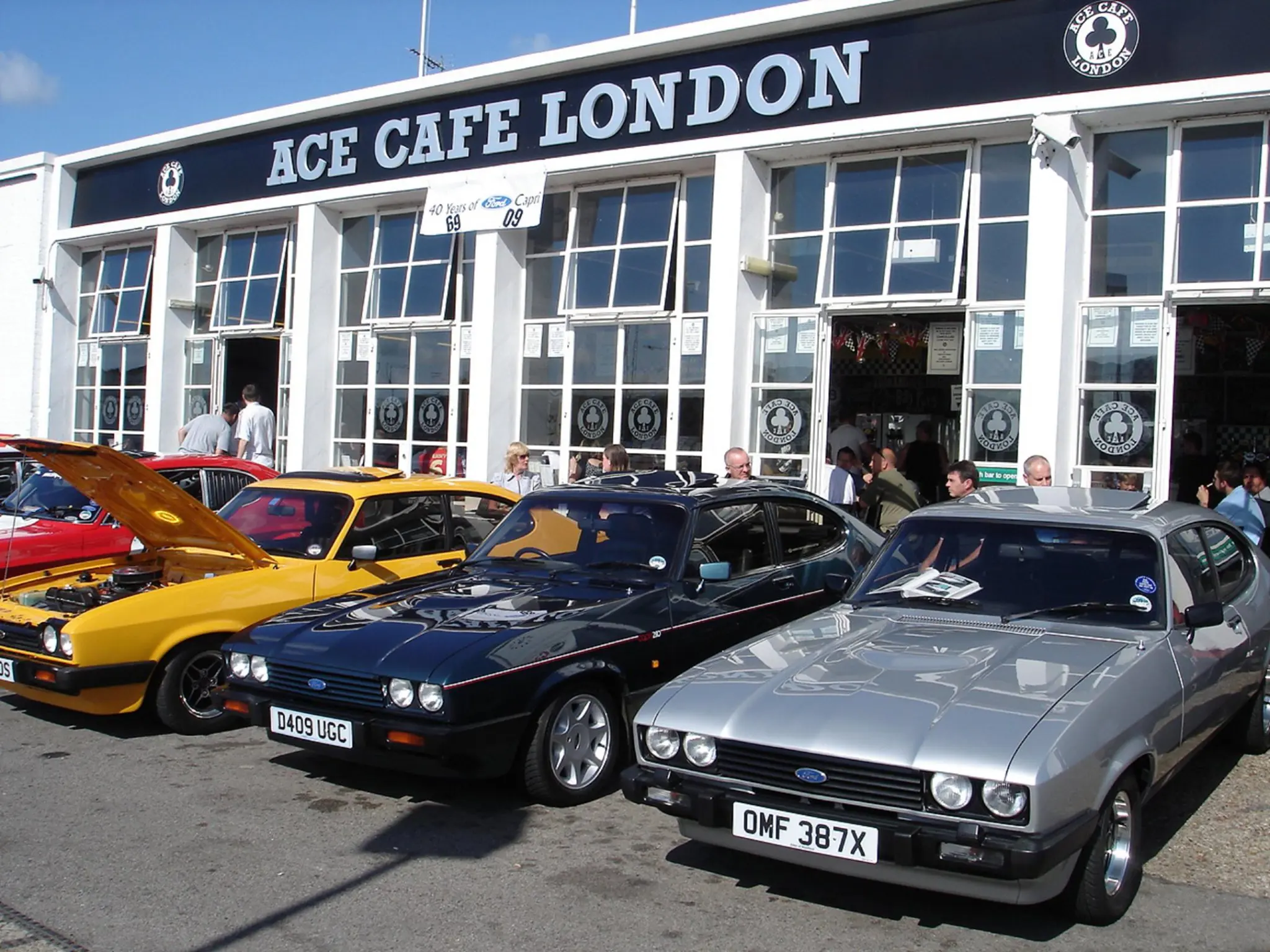THE ACE CAFE – A CELEBRATION
08 March 2023
In days gone by, when Strand cigarettes cost xx/d for twenty, there was a network of transport cafes in and around London. Today, most of them are all but memories, but the Ace in North London is still very much a landmark venue.
The Ace commenced trading in 1938 as a roadside cafe serving traffic on the recently-opened North Circular Road. 1939 saw the venue expand to include a petrol station, car wash and repair shop. The original building became a victim of the Blitz in 1940, and the cafe reopened in a temporary structure. By 1949, there was a striking new edifice.
In the following decade, the Ace was one of the capital’s most famous transport cafe. The 1950s saw London become more dependent on road transport, and residents of Harrow seeking work should call ELGar 7172. There always seemed to be a need for counter hands to serve 2,000 meals per day, with “food and overalls provided”. For a hard-pressed commercial driver on a daily subsistence allowance of 15 shillings, the Ace offered reasonably priced meals at all hours.

In 1952 Motor Commerce magazine found the Ace “very inviting”, but by the end of the 1950s, it was becoming known as a haunt of ‘Ton Up Boys’. These were a late incarnation of the Teddy Boys, favouring Gene Vincent-style black leather jackets and motorcycles of various ages depending on their budgets. If they could afford a £25 deposit, a new machine could be theirs on a ‘Never-Never’ hire-purchase scheme.
The cafe was more welcoming to such youth than public houses, dance halls or cinemas. Nevertheless, such was the bikers’ notoriety that in 1961 the BBC commissioned a documentary with the splendid title Coffee Bar Cowboys. Two years later, the director Sidney J. Furie used the Ace as a setting for his film The Leather Boys, with many of the Ace’s patrons as extras.
Meanwhile, the press began ranting about the Ton Up Boys. On the 9 February 1961, The Daily Mirror stated, “On British roads today, the only vehicle carrying more dead people than a motorcycle is a hearse”. One alleged practice was for a biker to insert 6d in the jukebox and speed along the North Circular to Hanger Lane, aiming to return before Vince Taylor or Johnny Kydd stopped singing.
There were indeed concerns with young motorcycle owners. Some worried parents would tell the police their son’s registration number (the bikers tended to be male), while crash helmets would not be mandatory until 1973. But one regular observed in the fascinating book The Cafe Racer Phenomenon, “Generally it was quiet at the Ace – the tales of people lining the banks and egging on lads doing the ton past the café every week are rubbish”.
However, in August 1961, the London Metropolitan Police commissioned the first of a fleet of Daimler SP250s. The Daily Mirror hailed the arrival of “130mph Speed Cops” and announced they would be “a great help in curbing the menace of the ‘ton uppers’ - hooligan motorcyclists who boast of doing ‘a ton’… in built up areas”.
The end of the Ace’s second chapter came in 1969 when the ground floor became a tyre sales and fitting shop. But in 1997, under the guidance of Mark Wilsmore, the famous venue reopened, and today it is approved for weddings and civil partnerships. So while other transport cafes have passed into history, the Ace very much remains in business. Take it away Vince!
